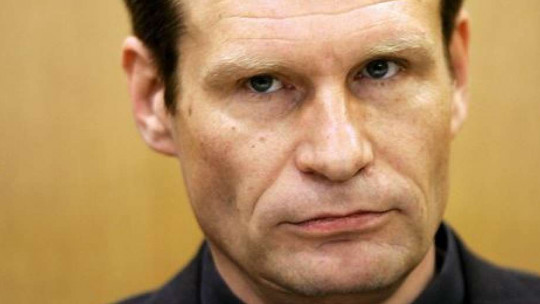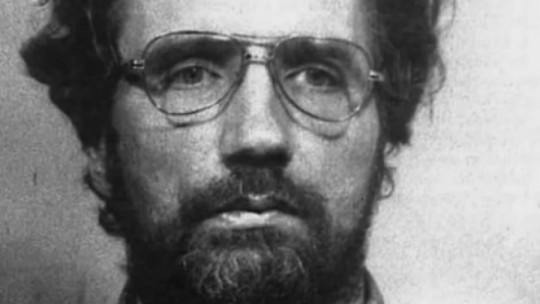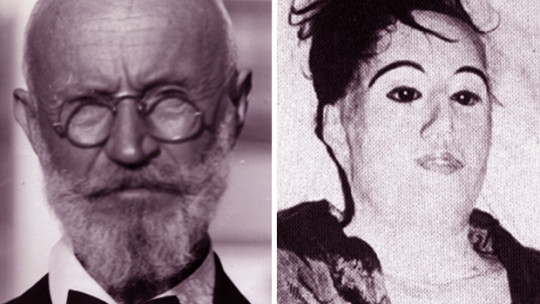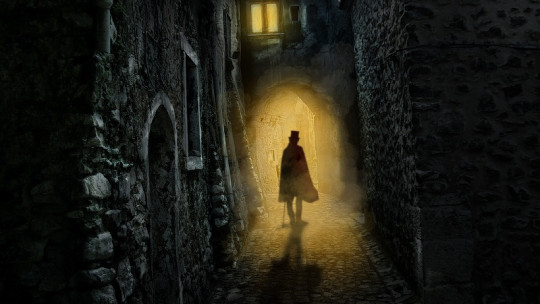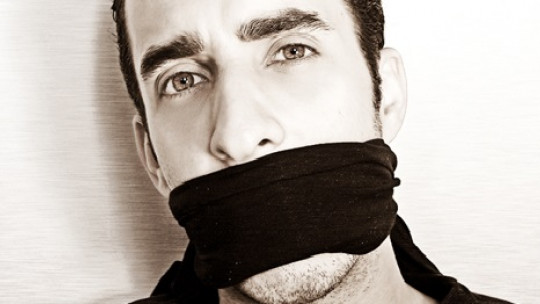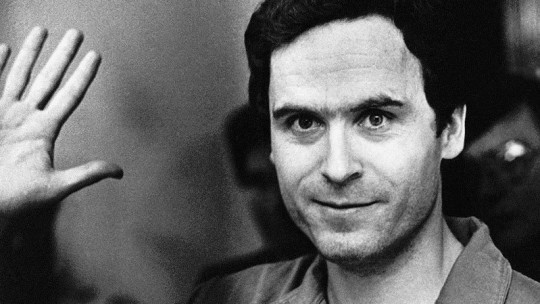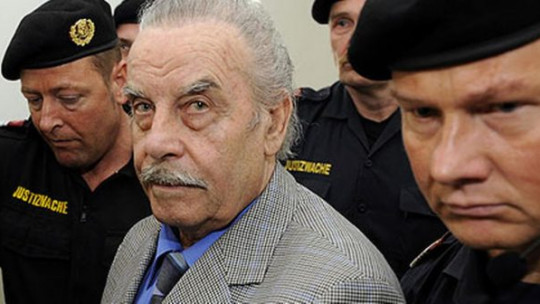
On April 26, 2008, a woman named Elisabeth arrived at a hospital in Austria to visit her nineteen-year-old daughter, who had suffered multiple organ failure.
Given her obvious state of nervousness, she was questioned by hospital doctors, at which point the woman declared that she had spent the last twenty-four years locked in her father’s basement, who had raped her repeatedly during this time and with whom she had conceived up to seven children (including the hospitalized daughter). This is the story of the Amstetten monster case
Brief summary of the Anstetten case
The history of this case begins in August 1984. At that time Elisabeth Fritzl, an eighteen-year-old woman, was drugged and locked in a cellar by her father, Josef Fritzl The cellar in question was located in the basement of the family home, having been built with premeditation years before by the young woman’s father.
Young Elisabeth remained tied for months, being frequently raped by her own father. She was forced to write a note in which she reported that she was leaving the house of her own free will and that she was in good health (indicating that she had joined a sect), in order to justify her absence to her mother and to the rest of society.
The confinement lasted for years, during which what would later be called the “Amstetten monster” He continuously abused his daughter, having up to a total of seven children with her (of which one would die due to her refusal to receive medical assistance) of which three remained with their mother and would frequently be used to coerce the woman to agree to have relations.
None of those locked up would see the light of the sun during all those years (in the case of the three children who remained with their mother, they did not do so until they were released), remaining in conditions of deprivation and suffering verbal and physical abuse. It wouldn’t be until Elisabeth’s eldest daughter and her father, Kerstin, fell seriously ill that she would be taken to the hospital. That moment that would end up making the case come to light and the woman and children freed, twenty-four years after Elisabeth was locked up.
The motivations of Josef Fritzl
The statements of the Amstetten monster and the psychologists who attended the case indicate that the subject’s main motivations for committing this act are based on the desire for power. Elisabeth was the most rebellious of her children, which made him choose her as an object of desire.
The subject used sexual violence as an element to dominate the young woman and keep her subdued In addition to this, the use of psychological and physical abuse both on her and on the children and of coercion to force her to do his will, as well as the situation of dependency to which he subjected her (he was the one who provided them with food and in on one occasion he threatened his daughter to stop doing it) reflect this interest in achieving the submission of women. Another aspect that shows that one of the main motivations of the subject was her power is found in the statements of the individual himself, who mentions that he wanted to have children with Elisabeth as a mechanism to dominate her and make her less attractive to other men.
Josef Fritzl links his actions, which he does not regret, to the experience of an abusive relationship by his mother, who abused him physically and mentally, and to the time in which he was born (corresponding to the Second World War and the Nazism). According to the experts who analyzed him, this could have caused a hatred towards the figure of his mother that would end up leading to a desire to dominate women and a notable lack of empathy.
Elisabeth’s children
Throughout the twenty-four years that she lived locked in the basement, the repeated rapes to which her father subjected her resulted in Elisabeth giving birth to a total of seven children during her captivity.
Three of them remained with their mother all their lives, in the basement, without having contact with the outside beyond what their mother and their father-grandfather explained to them about it. One of them, Michael, died three days after birth without receiving medical assistance (which is why Josef Fritzl’s charges include murder). His corpse was cremated in the cauldron by the Amstetten monster. The other three were taken to the surface, where they would be legally adopted by Elisabeth’s parents.
The reason why some were taken outside and others were not was, according to Fritzl himself, that those who lived on the surface were the ones who cried the most and adapted the worst to life in the basement.
It may be surprising that the adoption of the children did not arouse the suspicion of neighbors and relatives, and even of Elisabeth’s own mother. However, The Amstetten monster had prepared the situation so that when the children appeared they arrived at someone’s home with a letter pretending that they were children that Elisabeth had had from sporadic relationships and of whom she could not take care.
The role of Fritzl’s wife
Rosemarie, Elisabeth’s mother and then wife of Josef Fritzl, was investigated by the police for a time due to the possibility that she was in collusion with her husband and knew about her daughter’s situation. However, he apparently did not know where her son was or what had happened to her.
When he locked up his daughter, Josef Fritzl had forced Elisabeth to write a letter stating that she was leaving the home of her own free will and that she was safe. She also insisted that she not be searched. As for her grandchildren, they had been coming to the home as children that Elisabeth could not support and whom she asked them to raise.
Since the case was uncovered, Rosemarie has not communicated with her husband nor has she ever visited him in prison, currently being divorced from him. Today she makes periodic visits to her daughter and grandchildren.
Psychological opinion
The characteristics of the case could lead us to think that we are dealing with behaviors related to some type of mental disorder It is necessary to take into account that sometimes certain crimes can be carried out in states of altered consciousness in which the subject is not aware of his or her actions due to some illness, such as schizophrenia. This would require psychiatric confinement, but depending on the situation it could become non-criminally imputable.
In order to determine the subject’s mental state and faculties, Fritzl underwent various sessions with a psychiatrist. The result of said examination reflects that the Amstetten monster does not suffer from any type of mental pathology that clouds his ability to judge, being completely responsible and aware of his actions and their implications.
But despite this, a lack of empathy and emotional bonding, as well as sadistic sexual tendencies, were observed. All of this, together with the set of acts and statements carried out by the individual himself (he himself declared that he was born to rape), suggests the existence of psychopathy or sociopathy.
Trial and conviction
The Amstetten monster case took place throughout March 2009. During the trial, Josef Fritzl was charged with kidnapping, rape, incest and slavery, as well as murder in connection with the death of one of his children with Elisabeth, Michael.
Initially the accused would reject the last two charges, but would end up admitting them.
The jury’s final verdict was guilty on all counts sentencing the subject to life imprisonment in a psychiatric center.
Other crimes
The confinement and systematic rape of his daughter for twenty-four years was not the only crime committed by Josef Fritzl. The so-called Amstetten monster had been accused and even imprisoned on rape charges in the 1960s and during his youth.
In addition to that, He also kept his own mother locked up during the last years of his life making her prisoner and going so far as to wall up the windows so that she would not see sunlight again.
Present
Josef Fritzl is currently serving his sentence in a prison in Stein, apparently beginning to show cognitive deterioration that suggests the onset of dementia.
As for Elisabeth and her children, over the years they have been evolving positively Although they are still undergoing psychiatric treatment, little by little the woman’s children (aged between twenty-four and ten) are adapting to their new life and fortunately without major interference from the media.
In the case of Elisabeth, her recovery is such that she has considered making her visits to the psychiatrist more sparse, and apparently she could be beginning to become emotionally attached to one of her bodyguards.

